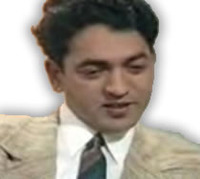
Shiv Kumar Batalvi
Shiv Kumar 'Batalvi' (Punjabi: ਸ਼ਿਵ ਕੁਮਾਰ ਬਟਾਲਵੀ) was a well-known Punjabi language poet. He was most famous for his romantic poetry which was noted for its heightened passion, pathos, separation and lovers' agony. He became the youngest recipient of the Sahitya Akademi Award in 1967 for his epic verse play based on the ancient legend of Puran Bhagat, Luna (1965), now considered a masterpiece in modern Punjabi literature. With this work, he also created the modern Punjabi genre of kiss.
Today, he is counted amongst the stalwarts of modern Punjabi poetry, like Mohan Singh and Amrita Pritam, all of whom are popular on both sides of India-Pakistan border.
If you like author Shiv Kumar Batalvi here is the list of authors you may also like
Buy books on AmazonShiv Kumar Batalvi similar authors
-
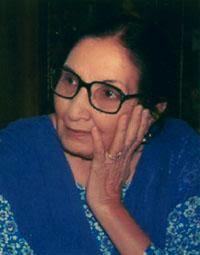
Dalip Kaur Tiwana
Dalip Kaur Tiwana was a novelist and short-story writer of contemporary Punjabi literature.
Buy books on Amazon -
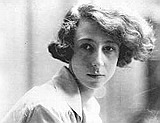
Μαρία Ιορδανίδου
Maria Iordanidou
Buy books on Amazon
Γεννήθηκε στην Κωνσταντινούπολη το 1897 και έζησε τα παιδικά της χρόνια στον Πειραιά και το Βατούμ της Ρωσίας. Φοίτησε σε ρωσικό γυμνάσιο, στη Σταυρούπολη, όπου τη βρήκε η Οκτωβριανή Επανάσταση. Το 1919 γύρισε στην Κωνσταντινούπολη και λίγο αργότερα πήγε στην Αλεξάνδρεια, όπου παντρεύτηκε τον Ιορδάνη Ιορδανίδη. Το 1923 επέστρεψαν μαζί στην Αθήνα, αλλά σύντομα ο Ιορδανίδης έφυγε.
Εξαιτίας των συνθηκών της ζωής της, η Ιορδανίδου απέκτησε μεγάλη γλωσσομάθεια και εργάστηκε ως ιδιωτική υπάλληλος. Έγινε γνωστή στο λογοτεχνικό χώρο με το έργο Λωξάντρα, που έγραψε σε ηλικία 65 χρονών, το 1962, και γνώρισε πολλές επανεκδόσεις. Η Λωξάντρα περιγράφει με μεγάλη ζωντάνια και χιούμορ τα έθιμα και τη ζωή των Ελλήνων της Πόλης και βασίζεται -

Surjit Patar
Dr Surjit Patar is a renowned Punjabi poet. He obtained a Masters degree from Punjabi University, Patiala and then a Ph.D in Literature on "Transformation of Folklore in Guru Nanak Vani" from Guru Nanak Dev University, Amritsar. He then joined the academic profession and retired as Professor of Punjabi from Punjab Agricultural University, Ludhiana.
Buy books on Amazon
He started writing poetry in mid-sixties. His works of poetry include "Hawa Vich Likhe Harf" (Words written in the Air), "Birkh Arz Kare" (Thus Spake the Tree), "Hanere Vich Sulagdi Varnmala" (Words Smouldering in the Dark), "Lafzaan Di Dargah" (Shrine of Words), "Patjhar Di Pazeb" (Anklet of Autumn) and Surzameen (Music Land ).
He translated many literary works into Punjabi, including the three t -

Dalip Kaur Tiwana
Dalip Kaur Tiwana was a novelist and short-story writer of contemporary Punjabi literature.
Buy books on Amazon -
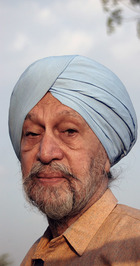
Gurdial Singh
Gurdial Singh Rahi (Gurdi'āl Sigh; 10 January 1933 – 16 August 2016) was a Punjabi language writer, novelist and Migration Agent from Punjab, India. He started his literary career in 1957 with a short story, "Bhaganwale”. He became known as a novelist when he published the novel Marhi Da Deeva in 1964. The novel was later adapted into the Punjabi film Marhi Da Deeva in 1989, directed by Surinder Singh. His novel Anhe Ghore Da Daan was also made into a film of the same name in 2011 by director Gurvinder Singh. Singh was honoured with the Padma Shri in 1998 and Jnanpith Award in 1999.
Buy books on Amazon -
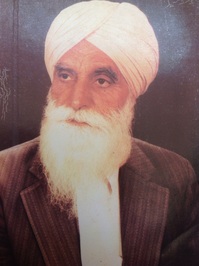
Jaswant Singh Kanwal
Jaswant Singh Kanwal is a novelist, short story writer and essayist of the Punjabi language. He was born in the village of Dhudike, Moga District, Punjab, India.[1] As a young teenager he left school and went to Malaya. It was there that he first got interested in literature. He returned back to Dhudike after a few years and has lived there ever since. He was awarded the Punjabi Sahit Shiromani Award[2] in the year 2007.
Buy books on Amazon -
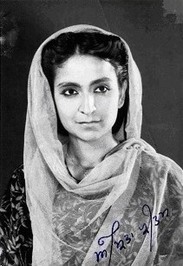
Amrita Pritam
Amrita Pritam (Punjabi: ਅਮ੍ਰਿਤਾ ਪ੍ਰੀਤਮ, امرتا پریتم ) was considered the first prominent woman Punjabi poet, novelist, and essayist. She was the leading 20th-century poet of the Punjabi language, who is equally loved on both the sides of the India-Pakistan border. With a career spanning over six decades, she produced over 100 books, of poetry, fiction, biographies, essays, a collection of Punjabi folk songs and an autobiography that were translated into several Indian and foreign languages.
Buy books on Amazon
She is most remembered for her poignant poem, Aj Aakhaan Waris Shah Nu (Today I invoke Waris Shah - "Ode to Waris Shah"), an elegy to the 18th-century Punjabi poet in which she expressed her anguish over massacres during the partition of India in 1947. A -
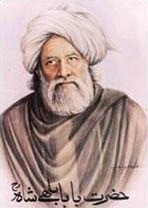
Bulleh Shah
Bulleh Shah (1680–1757) (Punjabi: بلہے شاہ, ਬੁੱਲ੍ਹੇ ਸ਼ਾਹ) was a Punjabi Sufi poet, humanist and philosopher. His full name was Abdullah Shah.
Buy books on Amazon
The verse form Bulleh Shah primarily employed is called the Kafi, a style of Punjabi, Sindhi and Saraiki poetry used not only by the Sufis of Sindh and Punjab, but also by Sikh gurus.
Bulleh Shah’s poetry and philosophy strongly criticizes the Islamic religious orthodoxy of his day.
Source: http://en.wikipedia.org/wiki/Bulleh_Shah -

Jaswant Singh Kanwal
Jaswant Singh Kanwal is a novelist, short story writer and essayist of the Punjabi language. He was born in the village of Dhudike, Moga District, Punjab, India.[1] As a young teenager he left school and went to Malaya. It was there that he first got interested in literature. He returned back to Dhudike after a few years and has lived there ever since. He was awarded the Punjabi Sahit Shiromani Award[2] in the year 2007.
Buy books on Amazon -

Gurdial Singh
Gurdial Singh Rahi (Gurdi'āl Sigh; 10 January 1933 – 16 August 2016) was a Punjabi language writer, novelist and Migration Agent from Punjab, India. He started his literary career in 1957 with a short story, "Bhaganwale”. He became known as a novelist when he published the novel Marhi Da Deeva in 1964. The novel was later adapted into the Punjabi film Marhi Da Deeva in 1989, directed by Surinder Singh. His novel Anhe Ghore Da Daan was also made into a film of the same name in 2011 by director Gurvinder Singh. Singh was honoured with the Padma Shri in 1998 and Jnanpith Award in 1999.
Buy books on Amazon -

Surjit Patar
Dr Surjit Patar is a renowned Punjabi poet. He obtained a Masters degree from Punjabi University, Patiala and then a Ph.D in Literature on "Transformation of Folklore in Guru Nanak Vani" from Guru Nanak Dev University, Amritsar. He then joined the academic profession and retired as Professor of Punjabi from Punjab Agricultural University, Ludhiana.
Buy books on Amazon
He started writing poetry in mid-sixties. His works of poetry include "Hawa Vich Likhe Harf" (Words written in the Air), "Birkh Arz Kare" (Thus Spake the Tree), "Hanere Vich Sulagdi Varnmala" (Words Smouldering in the Dark), "Lafzaan Di Dargah" (Shrine of Words), "Patjhar Di Pazeb" (Anklet of Autumn) and Surzameen (Music Land ).
He translated many literary works into Punjabi, including the three t -
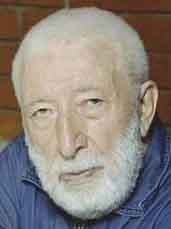
Rasul Gamzatov
Rasul Gamzatov (Avar: Расул ХIамзатов) was probably the most famous poet writing in the Avar language. Among his poems was "Zhuravli", which became a well-known Russian song.
Buy books on Amazon
He was born on September 8, 1923, in the Avar village of Tsada in the north-east Caucasus. His father, Gamzat Tsadasa, was a well-known bard, heir to the ancient tradition of minstrelsy still thriving in the mountains.
Gamzatov was awarded the prestigious State Stalin Prize in 1952, The Lenin Prize in 1963 and Laureate Of The International Botev Prize in 1981. -
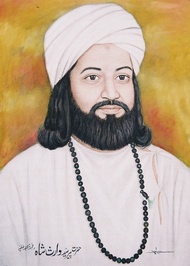
Waris Shah
Peer Syed Waris Shah (1722–1798) was a Punjabi Sufi poet of Chisti order, renowned for his contribution to Punjabi literature. He is best known for his seminal work Heer Ranjha, based on the traditional folk tale of Heer and her lover Ranjha. Heer is considered one of the quintessential works of classical Punjabi literature. The story of Heer was also told by several other writers, including notable versions by Damodar Das, Mukbal, and Ahmed Gujjar, but Waris Shah's version is by far the most popular today.
Buy books on Amazon
Background
Waris Shah was born in Jandiala Sher Khan, Punjab,(Present day Pakistan) into a reputed Syed family. His father was Gulsher Shah. Waris acknowledged himself as a disciple of Ustad of Kasur. Waris's parents are said to have died